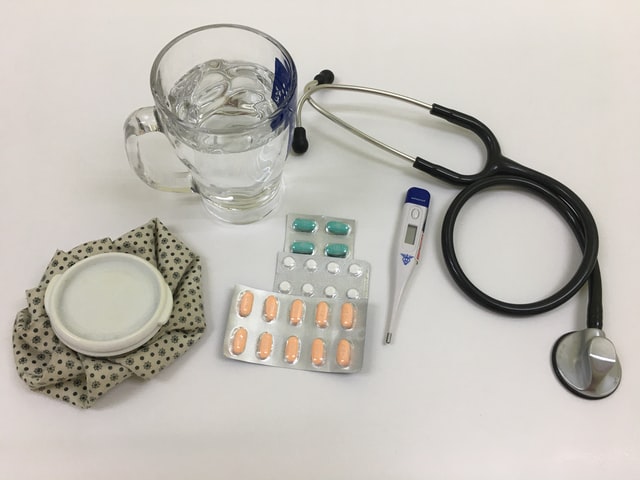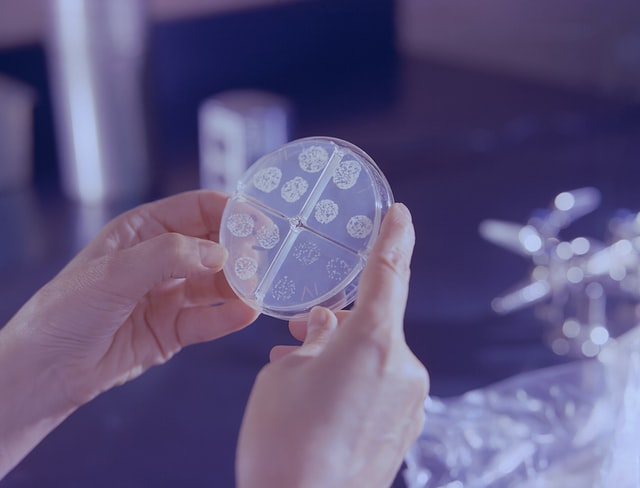I love water so much, I always have it within arms’ reach.
Yet there is one thing that terrifies me: when my throat starts to feel dry and scratchy, not just because of the flu or a cold but also due to severe dehydration.
To avoid feeling dehydrated in this way yourself–and starting an illness-plagued day on the wrong foot–keep these tips in mind before your next bout with sickness begins!
Why is staying hydrated important when sick
When you’re sick with the flu or other illness, staying hydrated is important to maintain your health. As dehydration worsens the symptoms, you should drink plenty of fluid for relief and prevention purposes.
Additionally, if your fever comes with vomiting or diarrhea, it’s important to continue drinking fluids because these conditions can lead to complications that require more care than just water intake.
Filters can help eliminate contaminants in water and drinking more water is generally good for your health. A whole house filter can be used from any faucet in your home, so it’s easy to stay hydrated when you’re feeling under the weather. Alternatively, a countertop filter can help ensure that no matter how bad things get, your body stays hydrated for as long as possible.
A water filtration system requires minimal space in any home and only needs an electric outlet to install on top of a sink’s faucet head so it doesn’t take up any space.
How to stay hydrated when you have the flu
When you’re sick, it’s important to make sure that you are staying hydrated. Proper rehydration is necessary for avoiding a secondary infection or exacerbation of your current condition.
Water
Water is the number one drink when you are sick because it helps transport nutrients to cells for energy, growth, and proper functioning.
A lot of people drink tap water, but it is best to filter your H2O. There are a variety of ways you can spruce up your H2O as well. For those who want more information on the benefits and drawbacks associated with drinking water from different sources, they should consult their physician or read articles online for more details before making a decision about what type of source they would like to consume.
Staying hydrated helps prevent headaches and other ailments related to dehydration.
If you want to spruce up your water, try adding fruit slices or fresh herbs. These are great ways of making the most out of your tap water and it will give a refreshing taste with no added sugar!
Alkaline water
Alkaline water is spring or mineral water that has a pH of over 7.0. Alkaline water is a drink that has been touted as an effective way to combat cold symptoms. Electrolytes are the salts and minerals found in blood, which help maintain a balance of fluids within cells. In addition to electrolytes, other drinks can also provide natural relief from cold symptoms such as ginger tea or honey water.
Coconut water
Coconut water is a natural, refreshing beverage that contains electrolytes and vitamins. It’s often consumed as a sports drink or in between meals.
Coconut water is a better option than sports drinks. It doesn’t contain as much sugar and salt, but still contains the sodium you need while dehydrated. A dash of salt can get your electrolytes back in balance quickly too!
Some people have claimed that coconut water is a healthier alternative to drinking regular tap or bottled water. It contains more nutrients, such as potassium and electrolytes than other types of drinks.
Hot Drinks
Tea is a warm herbal beverage that can be beneficial for your health. Tea is not caffeinated, so it will help you stay hydrated and avoid dehydration. Although consuming other caffeinated beverages like coffee or black tea might result in the body becoming dehydrated, if taken in moderation these drinks do not pose too much of a threat to one’s health as long as they are consumed with water alongside them.
Traditional hot drinks like tea and cocoa can help you to stay hydrated when sick. Green tea is also helpful in fighting colds. Ginger tea has potent anti-inflammatory effects which makes it a great choice for people who suffer from any type of inflammation or pain.
Fruits and vegetables
Fruit, vegetables, and flavored vitamin supplements are good for refreshing beverages. Citrus fruits have Vitamin C, berries have antioxidants and vitamins, and detox water is a great way to hydrate.
Fruits and vegetables are the most nutritious when they have high water content. Water is an important part of our body, so it’s best to eat fruits and vegetables that contain more than 70% water. Frozen fruits can be just as good for your diet as fresh ones because they retain their nutrients during the freezing process.
Vitamin supplements are just as good for you, even if they’re not the same type of fruit. Vitamins C and E help to fight off any germs that may be lingering in your body.
Oral hydration solutions
Oral hydration solutions are an oral fluid replacement for people with a poor diet, a dry mouth, or who have difficulty swallowing. Oral hydration solutions come in the form of a drink, a spray, or a lozenge.
Oral rehydration sachets are most commonly powders that you mix with water and then drink. These solutions are water-based and widely used for rehydration purposes. Ask your pharmacist which ones are right for you or your child.
The three most popular ingredients in these types of solutions are water, sugar, and salt.
DripDrop ORS
DripDrop ORS is a solution that users will drink regularly to combat dehydration. It tastes good so people are more likely to drink it often enough to remedy dehydration. DripDrop ORS drinks are also more effective than water at relieving the symptoms of colds and flu, as well as other types of illnesses.
Juice
Juice is a beverage made from the extraction of fruit and vegetables from their natural state, using a pressurized container called a juicer. Juices are often consumed as one of the healthier beverages and can be consumed as a meal or snack.
Some benefits that orange juices have included high vitamin C content which wards off illness and fluid balance for those who suffer from dehydration.
Orange juice is a great choice for immune function. It contains up to 138% of the daily recommended amount of vitamin C, which has recently been shown in research to be more effective at reducing cold symptoms than preventing them entirely.
Smoothies
A smoothie is a healthy drink that hydrates and helps you stay fit. It can be made with or without fruit, depending on your taste preference!
Smoothies are great for replenishing fluid stores. For example, a banana smoothie is high in potassium and magnesium which help to maintain hydration levels.
You can make a smoothie with whatever you have on hand. You should use nutrient-rich foods like berries, nuts, and seeds to help boost your immune system when it is low.
Soup
Soup is a type of food made from boiling meat, vegetables, or some combination thereof together with stock or broth.
Soups are a great way to add more fluids and nutrients to your diet. They can be found in many different flavors, such as chicken noodle soup. Soups have been shown to help reduce the risk of heart disease, cancer, type 2 diabetes, and dementia.
Soup is an excellent option for easing symptoms of sore throat or congestion. If you’re experiencing these symptoms, it’s best to not consume canned soups because they are high in sodium content and can increase inflammation.
What not to drink when sick
When you’re sick, it’s important to stay hydrated and avoid alcohol and caffeinated beverages. Alcohol can cause dehydration and caffeine can lead to more nausea.
Coffee
Coffee is a popular drink, but it can dehydrate. When coffee consumes more water than the body needs, the excess liquid is eliminated through urine and sweat. However, even if you’re drinking moderate amounts of coffee every day for an extended period of time (1-2 cups/day), this doesn’t mean that your kidneys will be able to keep up with all that extra fluid loss; some people may experience dehydration as well as constipation due to too much caffeine in their diet.
Instead, drink water or unsweetened tea to stay hydrated when you’re sick.
Alcohol
Alcohol is a psychoactive drug that affects the central nervous system. Alcohol causes intoxication, sedation, and sometimes euphoria. It is classified as an addictive drug because it releases dopamine in the brain’s reward system, which can lead to dependence and abuse. Some studies have found that alcohol may help people eat less in the short term, but it also has negative effects on memory and cognition.
Alcohol is dehydrating and alters the effects of any medications or antibiotics you are taking. It will also make your body harder to fight illness. Drink lots of fluids, stay hydrated, and avoid alcohol when sick!
Sports Drinks
A sports drink is a non-alcoholic fluid that provides the body with sodium, potassium, and other electrolytes in order to avoid dehydration. The most common types of sports drinks are carbonated, containing sugar, and usually caffeine.
Sports drinks are a controversial topic. Some people recommend sports drinks for healthy individuals, but not those dealing with an illness. Sports drink companies argue that their products help athletes perform better and recover more efficiently from workouts or games by replenishing electrolytes lost during exercise.
In general, we don’t recommend using sports drinks as a source of fluids when sick.
FAQ
How much water to drink when sick?
When you are sick, it is important to try and drink enough water. It can be difficult to know how much you should be drinking when everyone’s body has its own unique response. If possible, your doctor will recommend a specific amount of fluids for the ailment that they have diagnosed.
In general, adults should drink about two and a half liters of water every day.
Is Gatorade good for you when you’re sick?
Gatorade is a popular drink that claims to hydrate the body when you’re sick. Electrolytes are the key to rehydration and drinking liquids can help prevent dehydration.
How do you rehydrate after severe dehydration?
When you are dehydrated, drinking water will help rehydrate your body. However, drinking too much water can make the situation worse by causing vomiting or diarrhea. Instead of chugging a lot of fluids in one sitting to avoid these problems, take small sips every 10 minutes until the feeling passes and then slowly drink more once it does.
In order to rehydrate after severe dehydration, your body uses electrolytes such as sodium, calcium, and potassium. When you have diarrhea or throw up, your electrolyte levels can be low. Salt supplements like sugar and potassium help replace lost fluids in the body which will restore the normal function of bodily organs.
How long does it take to fully hydrate your body?
It takes about six to eight hours for a person to fully hydrate their body in mild cases. You can check the color of your urine using these two easy tests: dark yellow means you’re dehydrated, and pale yellow indicates that you are properly hydrated.
What is the most hydrating drink?
The most hydrating drink is water. Proper hydration can help skin and mucous membrane act as a barrier, which helps the body produce bodily fluids such as tears and saliva to keep up with important functions. When sick, proper hydration can decrease nasal irritation caused by coughing or sneezing because of increased moisture in the lungs due to more volume of fluid being produced there.
Final thoughts
As you can see, staying hydrated can be a lot of help when you’re sick. It can help you feel better, make your skin and mucous membrane be a little less irritated from coughing or sneezing. So next time you’re sick, try to stay hydrated as much as possible and follow the advice provided in this article to do it properly.




